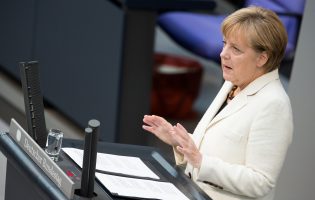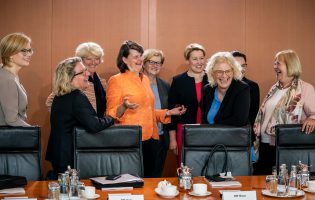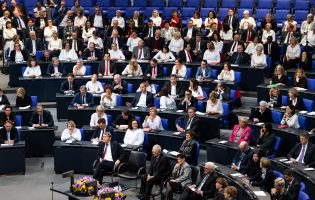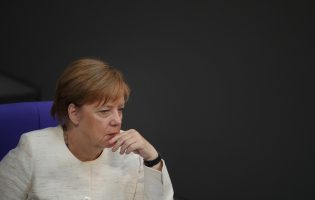
Merkel and the Transformation of Gender Politics in Germany
In contrast to her male predecessors, Angela Merkel declared in the early 1990s that she would not wait to become a political shipwreck before withdrawing from politics.[1] She announced her …
Thirty Years of German Unity
AGI Project
The Fourth Wave of Feminism: Europe’s New Gender Equality Agenda
Despite event cancellations fueled by corona virus concerns, the European Union launched its new Gender Equality Strategy on March 5, just in time for International Women’s Day. Long before equal …

Deutschland einig Mutti-Land?
Characterized as “the triumph of the Vaterland,” unification was a male-normed, male-dominated process, despite the significantly different gender regimes found in the two German states through 1989. In July 1990, Helmut Kohl …

Democracy and the Double Standard: European Parliament Responses to Ursula von der Leyen
Feminist scholars on both sides of the Atlantic have long assumed that there is a positive correlation between women’s numerical presence in legislative bodies (descriptive representation) and their ability to …

Necessary but Hardly Sufficient: Assessing a Century of Women’s Suffrage in Germany and the United States
Long before feminists began lobbying for affirmative action, gender mainstreaming, and quotas, suffragettes around the world presumed that the formula “add women, voting rights, and stir” would quickly transform their …

Squaring the Gender Circle: Merkel, Men, and the CDU/CSU “Master Plan” Crisis
In November 2005, Angela Merkel became Germany’s first female chancellor, the youngest person to reach the nation’s top leadership post to date. Having lost his own bid for the chancellorship …
The Sad Truth Highlighted by Germany Assaults
AGI Non-Resident Fellow Joyce Marie Mushaben weighs in on the Cologne assaults in this blog post from CNN.
Redefining What It Means To Be German
The fall of the Iron Curtain and the onset of German unification in 1990 brought hopes that Europe would quickly come to enjoy an unprecedented “peace dividend,” coupled with unparalleled …
Gender Paradoxes: Shifting Ethnic Identities and Opportunity Structures in Germany
There are three types of migration. The first type is difficult migration. The second type is very difficult migration. The third type consists of extremely difficult migration ….I can only …





